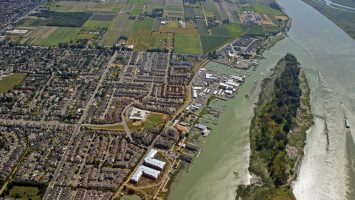
Rubicon Global – a technology company that provides waste, recycling, and smart city solutions to businesses and governments – has entered into a public-private partnership (P3) with the city of Montgomery, Alabama to enhance its residential and commercial waste services by employing its proprietary technology, RUBICONSmartCity. Smartphones loaded with the Rubicon hauler mobile app – as well as plug-in devices – will be placed in the city of Montgomery Sanitation Division’s fleet of 80 residential and commercial waste vehicles that service more than 61,000 residents.
“As Montgomery continues our journey to becoming a leader among America’s smart cities, we prioritize exploring new technologies to save taxpayer resources while better serving our residents,” said Montgomery mayor Todd Strange. “Testing Rubicon’s effectiveness in helping our Sanitation fleet provide ‘smarter’ services to our citizens and employees is a much better deal than securing new nonessential equipment or infrastructure, allowing us to be vigilant stewards of taxpayers’ money.”
The Sanitation Department will use Rubicon’s desktop portal, which works with the mobile app and plug-in device to create operational efficiency and improve customer service. The technology will also provide the city of Montgomery with planning data by enabling real-time information on sanitation operations. The data will help the city understand how to improve efficiency and quality of service in its operations, including tracking vehicle patterns, routing, and increasing recycling.
“Rubicon Global is thrilled to be an important partner in Montgomery’s newest wave of initiatives to help boost its environmental leadership and smart city strategy,” said Michael Allegretti, senior vice president of policy and strategic initiatives for Rubicon. “We hope the use of Rubicon’s technology allows the city to more seamlessly serve its residents and improve their quality of life by making communities more sustainable.”


